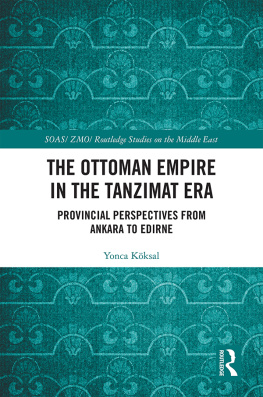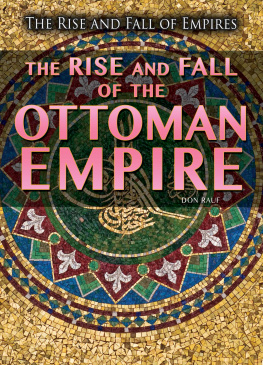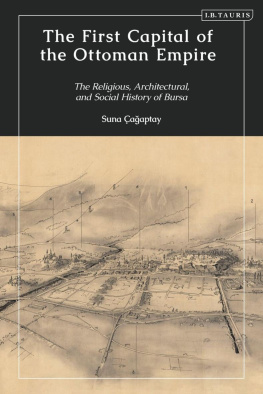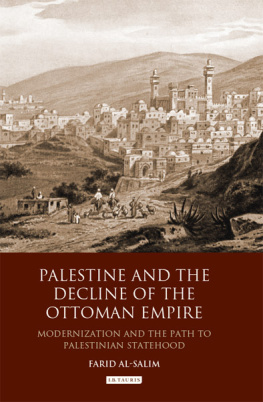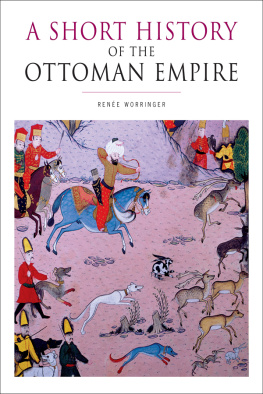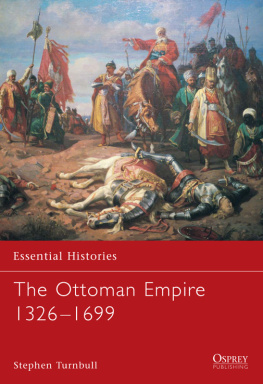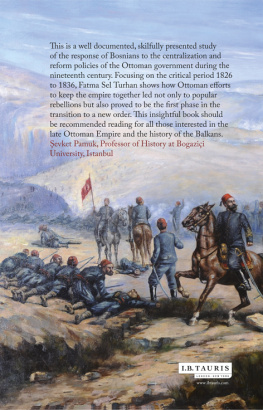The Ottoman Empire in the Tanzimat Era
The Ottoman Empire in the Tanzimat Era generates a new history of the Ottoman Empires Tanzimat reforms in the provinces of Edirne and Ankara. It studies variation across the two provinces and the crucial role of local intermediaries such as notables, tribal leaders, and merchants.
The book provides insights into how states and societies transform each other in the most difficult of times using qualitative and quantitative social network analysis and deep research in the Ottoman and British archives to understand the Tanzimat as a process of negotiation and transformation between the state and local actors. The author argues that the same reform policies produced different results in Edirne and Ankara. The book explains how factors such as socioeconomic conditions and historical developments played a role in shaping local networks.
The Ottoman Empire in the Tanzimat Era invites readers to rethink taken-for-granted concepts such as centralization, decentralization, state control, and imperial decay. It will be of interest to scholars and students interested in Middle Eastern and Balkan studies, and historical and political sociology.
Yonca Kksal is an associate professor in the Department of History at Ko University. She has a PhD in sociology from Columbia University. Her research interests include state-society relations in the 19th-century Ottoman Empire, Tanzimat reforms in Ottoman Bulgaria, nationalism and minority politics in Bulgaria and Turkey.
SOAS/ ZMO/ Routledge Studies on the Middle East
Edited by Benjamin C. Fortna, SOAS, University of London and Ulrike Freitag, Zentrum Moderner Orient & Freie Universitt, Berlin, Germany
This series features the latest disciplinary approaches to Middle Eastern Studies. It covers the Social Sciences and the Humanities in both the pre-modern and modern periods of the region. While primarily interested in publishing single-authored studies, the series is also open to edited volumes on innovative topics, as well as textbooks and reference works.
Previously published as SOAS/Routledge Studies on the Middle East
23 Intellectuals and Reform in the Ottoman Empire
The Young Turks on the Challenges of Modernity
Stefano Taglia
24 Dismantling the Ottoman Empire
Britain, America and the Armenian Question
Nevzat Uyank
25 Syria in World War I
Politics, Economy and Society
Edited by M. Talha iek
26 The Late Ottoman Empire and Egypt
Hybridity, Law and Gender
Elizabeth H. Shlala
27 The Ottoman Empire in the Tanzimat Era
Provincial Perspectives from Ankara to Edirne
Yonca Kksal
For more information about this series, please visit: https://www.routledge.com/middleeaststudies/series/SOAS
First published 2019
by Routledge
2 Park Square, Milton Park, Abingdon, Oxon OX14 4RN
and by Routledge
52 Vanderbilt Avenue, New York, NY 10017
Routledge is an imprint of the Taylor & Francis Group, an informa business
2019 Yonca Kksal
The right of Yonca Kksal to be identified as author of this work has been asserted by her in accordance with sections 77 and 78 of the Copyright, Designs and Patents Act 1988.
All rights reserved. No part of this book may be reprinted or reproduced or utilised in any form or by any electronic, mechanical, or other means, now known or hereafter invented, including photocopying and recording, or in any information storage or retrieval system, without permission in writing from the publishers.
Trademark notice: Product or corporate names may be trademarks or registered trademarks, and are used only for identification and explanation without intent to infringe.
British Library Cataloguing-in-Publication Data
A catalogue record for this book is available from the British Library
Library of Congress Cataloging-in-Publication Data
A catalog record has been requested for this book
ISBN: 978-1-138-33573-8 (hbk)
ISBN: 978-0-429-44358-9 (ebk)
Typeset in Times New Roman
by codeMantra
To my parents, Gnay and Nurcan Kksal, and to my grandmother Aye Orhun
Writing this book has proved to be a long process in which I received the support of many individuals and institutions. I first started to entertain with the idea of expanding and turning my dissertation into a book more than ten years ago. Completing this book project took a while in the midst of heavy teaching and administrative duties, other publication projects and raising a family. By then, some of the most important people for this project had already passed away. First, I should thank my mentors at Columbia University for their continuous support and encouragement. I am very lucky to have a wonderful advisor: Karen Barkey shared my passion for the Ottoman Empire and supported this project from the very beginning. I benefited a lot from her valuable insights on both state transformations and the Ottoman Empire, and her continuous encouragement was crucial for completing this book. Charles Tilly was a great mentor and a prodigious scholar. He was always there for me whenever I was puzzled with the complexities of my cases. He inspired me with his fast replies and ingenious ideas. I deeply feel his absence and miss his intellectual guidance.
I am thankful to the other members of my dissertation committee, Harrison White, Patrick Heller and Nader Sohrabi, for giving such detailed and thoughtful comments. Their feedback has been crucial for further developing this study into a book. I benefited a lot from Martin Gargiulos short stay at Columbia University and learned the basics of social network analysis. Guenther Roth deserves special thanks too. Years ago he convinced me to stay in the graduate program when I was about to quit. Engin Deniz Akarl has been an enthusiastic supporter of this project from the beginning. This book owes a great deal to the support of friends, colleagues and students at Ko University. I especially would like to thank Dilek Barlas, Mehmet Polatel, Can Nacar, Mark Baker, Nazmi Al, Alexis Rappas, Lucienne Thys enocak, Zafer Toprak, Berk Emek and Semih Burak rs.
Several institutions provided financial support at different stages of this study. American Association of University Women International Fellowship, Columbia University Travelling Fellowship, Amherst Colleges Copeland Fellowship and a research fund from College of Social Sciences and Humanities at Ko University funded some parts of this project. I thank these institutions for providing timely support when it was much needed. A major part of fieldwork for this study was completed in the Ottoman Archives in Istanbul and Ankara. I thank the staff at the Prime Ministry Archives in Istanbul and at Center for Islamic Studies (ISAM) for their help in locating documents. The complexities of the Ottoman Archives are not easy to handle, and I am thankful to some colleagues and friends for helping me survive in the archives: Mehmet Gen kindly offered his expertise and directed me to very important data sources. A group of fellow researchers, Jun Akiba, Halil brahim Erbay, Nadir zbek and Figen Takn zglen shared their excitement and knowledge in the archives.
Friends in both New York and Istanbul helped me pass through the long process of researching and writing. Among them, I would like to thank Francesca Brenner, Murat Yksel, Melis Coan Baban, Neema Nouri, Susie Hackett Noori and Arafaat Valiani. My brother, Hasan Orhun Kksal, shared his house during my stay in Ankara and motivated me by setting the example of a successful academician. My friend George Gavrilis read and commented on all chapters and undertook the difficult job of editing in the midst of his busy schedule. Without his emotional and intellectual support, I would not have completed this book. I would like to thank Joe Whiting and Titanilla Panczel for their help during the publication process. I also thank Ben Fortna and Ulrike Freitag for including this book in SOAS/Routledge Studies on the Middle East series and to my anonymous reviewers for their helpful comments.

